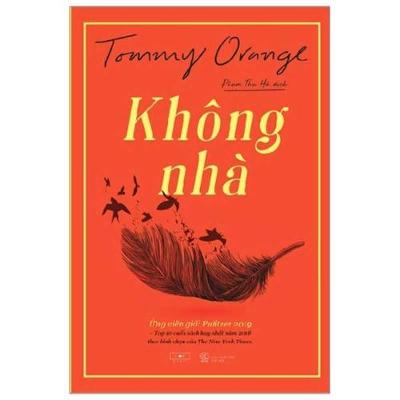
nannah
Written on Mar 31, 2022
I think Tommy Orange tried to fit too much into this novel. There’s so many characters, so many literary devices, so many PoVs, and I wasn’t a fan of the writing style. It’s obviously a case of “just not for me”, because it’s got nearly four stars here.
Content warnings:
- racism
- genocide
- graphic descriptions of the above
- drug & alcohol addiction
- non-black characters using AAVE
- fatphobia
- rape
- mass shooting
- domestic abuse
Representation:
- every PoV character is indigenous
There There shows glimpses into the lives of twelve indigenous Americans before they all attend the Oakland Powwow, and then shows how their stories converge at the powwow itself. One of these characters is Dene Oxendene, hoping to honor his late uncle by creating a video project that gathers indigenous people's stories from their own mouths.
I see this book a lot like Dene’s video project (but with a clearer goal in mind, as he states in the prologue): to talk about the “urban indigenous American”, whose story hasn’t been shared as widely before.
The book's prologue and interlude is heartbreakingly devastating and well-written. It goes into the history of American indigenous people from their points of view. It’s probably the most impactful thing I’ve read this year so far.
I wish the rest of the book is as well written, though. It feels awkward and jolting, with entire paragraphs of sentences consisting of two to four words each. That’s obviously a style choice, but it just isn't my thing.
Tommy Orange also attempts a lot with this debut, trying to fit 12 individual PoVs in one novel under 300 pages. Though I commend him on that, I'm not sure how well that works. Of course, I’m in the minority here, since the book has been hailed as an instant classic. But on page 210 or so, the last character is just being introduced. It doesn’t leave much room for these characters to have any sort of arc -- or do anything besides be introduced before they get to the powwow. It could be argued that these characters having arcs don’t matter as much as us simply getting that important glimpse of their lives, like what’s represented by Dene’s project. I can appreciate that, even if that’s also not exactly my thing. I could probably learn to appreciate that more.
I think every kind of PoV is written, too: first person, third person, second person, and in every kind of tense. I’m not exactly sure what that does for the novel, to be honest … maybe to help distinguish between characters? Because they all have the same voice, which makes differentiating them very, very difficult.
These issues aside, my low rating is honestly a matter of taste alone. If he ever writes a nonfiction book, I will probably be one of the first in line to read it.


